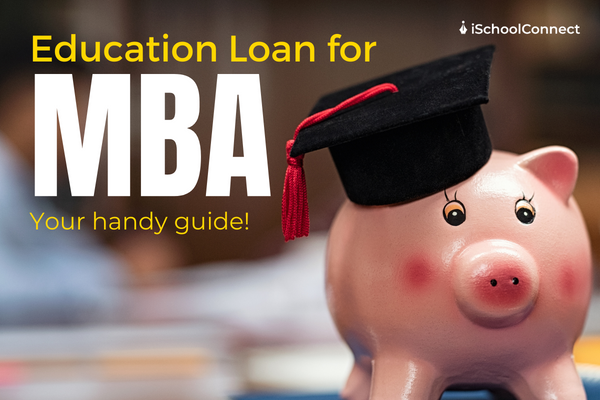Education Loan for Bachelors: A Guide to Financing Your Undergraduate Studies

Pursuing higher education, particularly a Bachelor’s degree, is one of the most significant investments you can make in your future. However, the rising costs of tuition fees, accommodation, and other related expenses can make this dream seem out of reach for many students. This is where an education loan can come to the rescue. Education loans are a valuable resource for students who wish to pursue a Bachelor’s degree but lack the financial means to do so. In this blog, we’ll explore everything you need to know about securing an education loan for your Bachelor’s degree, including the types of loans available, eligibility criteria, the application process, and tips for repayment.
What is an Education Loan?
An education loan is a type of financial assistance provided by banks or financial institutions to help students cover the costs of their education. These loans can cover tuition fees, books, supplies, accommodation, and even travel expenses for studying abroad. Education loans are typically offered at competitive interest rates and come with flexible repayment options, making them an attractive option for students seeking financial support.
Types of Education Loans for Bachelors
There are two main types of education loans available for Bachelor’s degree programs:
1. Domestic Education Loans
Domestic education loans are for students who plan to study within their home country. These loans can be used to cover tuition fees, hostel charges, and other related expenses. They are generally easier to avail of as they don’t require international documentation and the terms are more standardized.
2. International Education Loans
If you plan to pursue a Bachelor’s degree abroad, you may need an international education loan. These loans often have slightly different terms and conditions, as they cover not just tuition fees but also other costs such as visa charges, airfare, and living expenses. In some cases, international loans may also require collateral or a co-signer.
Eligibility Criteria for Education Loans
While the specific criteria can vary slightly depending on the lending institution, the general eligibility requirements for an education loan are as follows:
1. Indian Students
For domestic loans within India, you must meet these requirements:
- Nationality: You must be an Indian citizen.
- Age: Typically, you must be between 18 and 35 years old at the time of application.
- Course and Institution: You need to be enrolled in a recognized institution and a full-time Bachelor’s degree program (e.g., B.A., B.Sc., B.Com, B.Tech, etc.).
- Academic Performance: Some banks may require a minimum percentage in your previous academic records (e.g., 50% or higher).
- Co-signer or Guarantor: If the loan amount is high or if you’re a first-time borrower, a co-signer, usually a parent or guardian, may be required.
2. International Students
For international loans, the eligibility is similar, but you will also need to provide additional documents such as:
- Proof of admission to an institution abroad.
- Visa approval (for study abroad loans).
- Financial documents showing that you or your family can afford the repayment of the loan.
Loan Amount and Interest Rates
The loan amount that can be availed depends on several factors, including the institution, course, and your financial background. For domestic loans in India, the maximum loan amount can range from INR 10 Lakhs to INR 20 Lakhs for studies in India. For studies abroad, the loan amount can go up to INR 1.5 Crore, depending on the cost of education.
Interest rates for education loans typically range from 9% to 15% per annum in India. For international loans, the rates may be slightly higher, depending on the lender and the country. The rate of interest also depends on factors such as whether you have a co-signer, the loan tenure, and whether the loan is secured with collateral.
Education Loan Repayment Process
Repaying your education loan is an important step to ensure financial stability after completing your studies. The repayment process usually involves the following steps:
1. Moratorium Period (Grace Period)
Most banks offer a moratorium period of 6 months to 1 year after completing your course. This period is a grace period during which you are not required to repay the loan. During this time, you can find a job and settle into your career before starting repayment.
2. Repayment Tenure
The repayment period for education loans can vary from 5 to 15 years, depending on the amount borrowed and the bank’s policies. Shorter repayment periods may have higher monthly installments, while longer tenures reduce the monthly burden.
3. EMI (Equated Monthly Installments)
Once the moratorium period ends, the repayment will begin through EMIs. These installments are fixed monthly payments that include both principal and interest. You can choose to pay EMIs through post-dated cheques, standing instructions, or via automatic deductions from your bank account.
Tips for Loan Repayment
- Start Early: If possible, start paying off the interest during the moratorium period to reduce the principal amount and the total interest.
- Explore Loan Forgiveness: Some countries offer loan forgiveness programs for students who take up certain jobs in public service. Research such options if applicable.
- Stay Organized: Keep track of your loan documents, repayment schedules, and make sure you never miss a payment.
Conclusion
Education loans are an excellent way for students to fund their Bachelor’s degree and achieve their academic dreams. By understanding the types of loans available, the eligibility criteria, and the repayment process, you can make an informed decision about financing your education. Make sure to explore all your options, compare interest rates, and choose the loan that suits your needs the best. Remember, taking on a loan is a responsibility, so plan your repayments carefully to ensure a smooth financial future.

